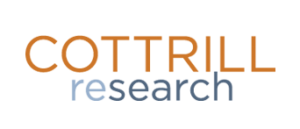On Nov. 30, 2020, S&P Global and IHS Markit announced they have entered into a definitive merger agreement to combine in an all-stock transaction which values IHS Markit at an enterprise value of $44 billion, including $4.8 billion of net debt. Douglas Peterson, President and CEO of S&P Global, will serve as CEO of the combined company and Lance Uggla, Chairman and CEO of IHS Markit, will be special advisor for one year following closing.
According to the press release:
The transaction creates a pro forma company with increased scale, world-class products in core markets and strong joint offerings in high-growth adjacencies, including private assets, small and medium enterprises, counterparty risk management, supply chain and trade and alternative data. Combined, the two companies will provide comprehensive solutions across data, platforms, benchmarks and analytics in ESG, climate and energy transition.
Initial Thoughts
Given the current value of financial data, it is not surprising that one of the biggest deals of 2020 involves the merger of two highly influential providers in this space. If there was ever any doubt, this event brings home the reality that, in today’s world, data is top dog. This merger, for all involved, will bring both immense challenges and unparalleled opportunities. The vast amount of data that will be generated by the newly merged company cannot be overstated. In July 2020, IHS Markit launched its Data Lake to make it easier to explore and extract its own market intelligence, in addition to incorporated proprietary and third-party data.
For procurement departments and supply chains that rely on market intelligence for benchmark pricing and market forecasts and analysis, there is one main concern: the likely increase of subscription fees and perhaps more rigid pricing, which further limits the ability of small and medium-sized businesses, and even larger entities with stretched budgets, to access the level of high quality data that is expected to be offered by the newly merged company. The subscription/pricing model is an area to watch for innovation.
This announced merger no doubt will up the game for financial and market intelligence data providers. The newly merged company will test major competitors in this space on their ability to innovate and adopt technologies to: 1) centralize vast amounts of data from disparate sources, 2) cleanse, analyze, and disseminate it in real-time, and 3) make it workflow ready regardless of user need or function (e.g., investor, banker, corporate buyer, market researcher).
History
IHS was founded more than 50 years ago and originated as a product catalog database provider for aerospace engineers. In July 2016, IHS merged with Markit, a provider of pricing and reference data. IHS brought to the merger its excellent legacy of providing comprehensive and deep market insight, forecast, and analysis coverage in areas that include aerospace, defense and security; automotive; chemicals; construction; energy; education; engineering and product design; financial services; government; life sciences; media and telecom; maritime and trade; and economics and country risk.
S&P Global provides credit ratings, benchmarks and analytics in the global capital and commodity markets with divisions that include S&P Global Ratings, S&P Global Market Intelligence, S&P Dow Jones Indices and S&P Global Platts. S&P Global got started in 1860 when Henry Varnum Poor published “History of the Railroads and Canals of the United States” for investors to better understand the emerging railroad industry. In 1941, Standard Statistics Co. and Poor’s Publishing Co. merged to form Standard & Poor’s. The Standard & Poor’s 500 index was introduced in 1957. In 2015, S&P Global Market Intelligence was formed with the integration of SNL Financial’s market data with S&P Capital IQ (timeline – S&P Global website).
Conclusion
For all the complexity this merger brings, and the advancements brought forward by both companies, starting with Poor’s railroad publication, the one simple constant that remains throughout is the need to understand the markets in which we invest, operate, and compete in.
Photo by Raimond Klavins on Unsplash

